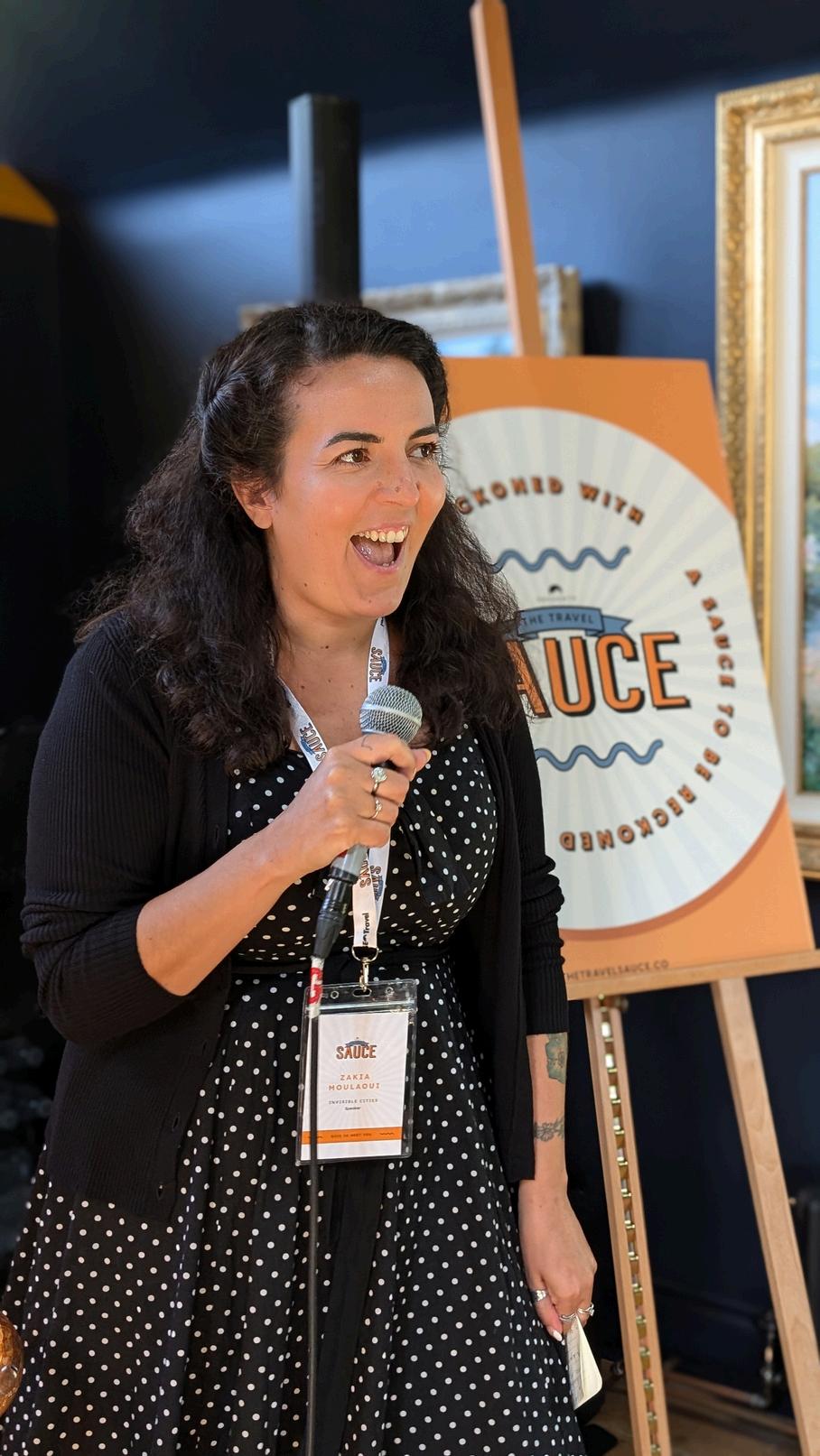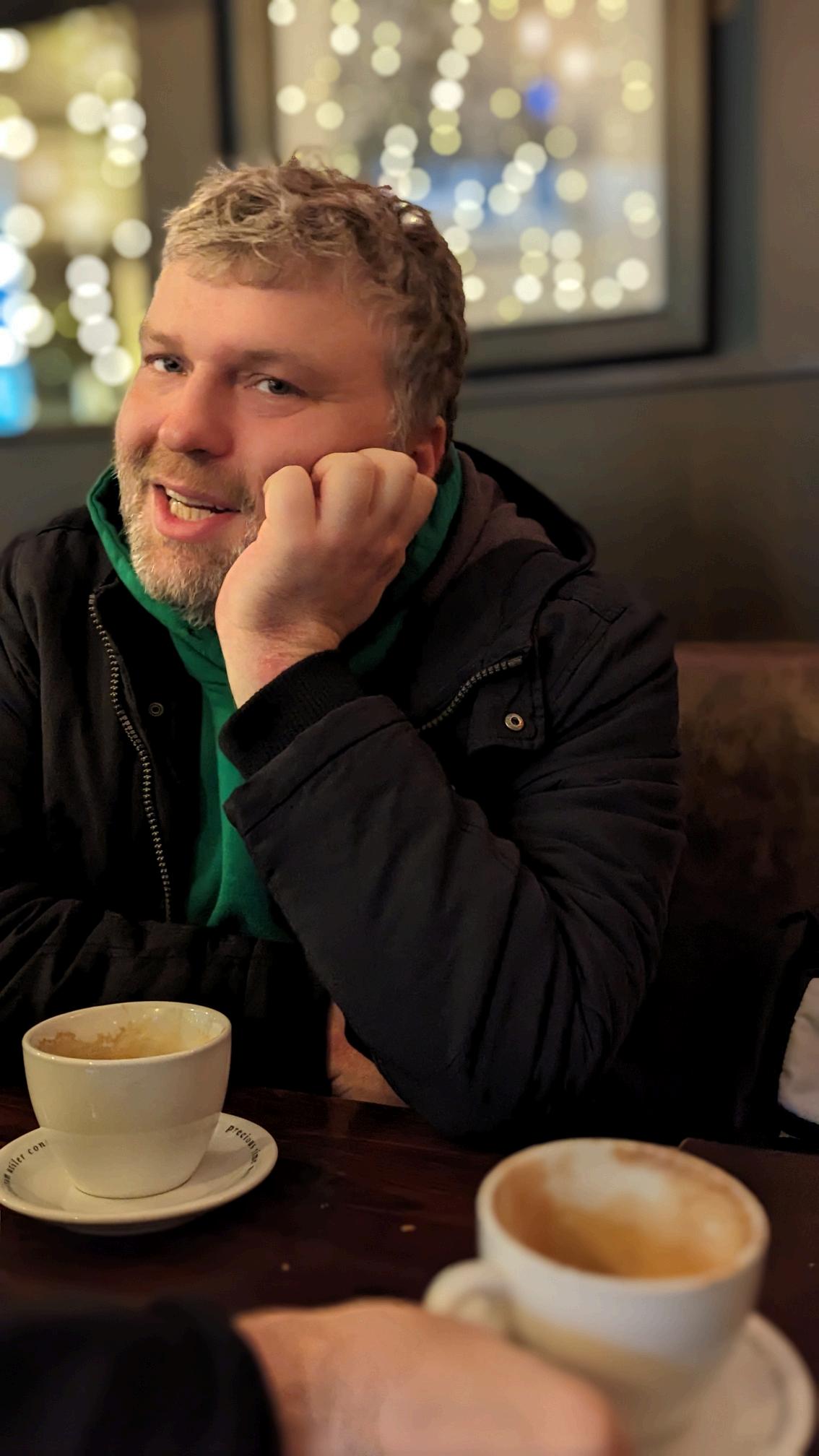Working with the Media Ourguideto





Watch this quick video from Manchester guide Andy who has now done lots of media interviews!
Despite the fact that he finds it weird seeing himself on screen, he’s become a total natural in front of the camera and puts that down to not overthinking it or worrying about the result.
He’s done interviews for BBC and Sky News and appeared live on Channel 4's Steph’s Packed Lunch with guide Johnny from Cardiff.



Introduction to working with the media
What we mean by working with the media and why we do it
What it’s like working with the media
Some of the coverage we've had
How we prepare and safeguard our team
Setting off limits questions
What journalists are looking for and how they work
Jargon explained
One of the most impactful ways for us to reach more people and introduce our tours is by working with the media.
This might be in the UK or further afield - we’ve had coverage in the US and Canada for example including The New York Times!
It might mean inviting a journalist to come on a tour so they can experience it for themselves and then write about it. Or it could be Zakia doing an interview over Zoom for a website on the other side of the world!
Sometimes a film crew or photographer will come too.
And every now and again we are invited to appear live on TV or radio!


When we work with the media, it means that they will hopefully publish content on their channels.
That might be on a website, a blog, on social media feeds or on broadcast channels like TV and radio.
It’s not always a guarantee and sometimes we might do loads of filming or a long interview that results in a tiny mention or 30 seconds of coverage.
They will have an idea for a feature or story angle that they want to cover and we will share our background and stories and work with them to agree how we talk about it all.
We invest time and effort in getting media coverage for lots of reasons:
Working with journalists and the media is great experience for our guides for interviews and public speaking. The outlet like Steph’s Packed Lunch, BBC or Sky News has a huge amount of viewers who might not have heard of us and want to come on a tour or support us.
It’s free! Apart from our time and sometimes some travel expenses, it doesn’t cost a penny.
It has a lot more positive influence than paid advertising doespeople trust features and articles far more than advertising because it’s coming from the reporter/journalist and not us.
It can reach far and wide, right the way to the other side of the world.
The more people shout about us the more important Google thinks we are so our website reaches more people too.


As well as all of these things...
Having media coverage sometimes leads to invites to attend events, speak at events and to be nominated for awards.




what’s it like?

“Being invited to speak at events and do interviews is an incredible opportunity to talk about why Invisible Cities is so important, and to attract supporters”
“I stood up on stage in front of a room full of people and told my story - it was scary but afterwards I felt really good that lots more people know about our work and why we do it”

“My background is in PR - some can be a bit frantic and chaotic organising interviews with the m and sometimes things change a last minute. I’m on hand to answ questions you might have”


“I’m my own worst critic but I find that I come across quite naturally and people seem to really like that”
“It’s important to be humble and an authentic version of yourself”

“I’ve become a bit of a local celebrity which is funny - but now I’m writing my own book”


There are good bits and occasionally more challenging bits to expect..
The media want you to feel really positive and well looked after so they will check you’re happy with everything.
Sometimes there can be lots of waiting around.
Other times it can feel a little bit rushed or pressured to get everything done quickly.
Sometimes journalists don’t know when content will be published, so it can be a bit of a waiting game.
Overall you will have a brilliant experience and pick up some great new skills for interviews and public speaking.










When we ask one of the team if they’d like to be interviewed or be a part of a story or filming, we want them to feel happy and excited about the opportunity.
We use it as a chance to show them how the media works so they can pick up new public speaking and interview skills.
If someone doesn’t want to get involved that’s absolutely fine and we never push people.
We always ask if there are any questions someone doesn’t want to answer, or any topics that make them feel uncomfortable.
We take care of everything - travel, a safe space to relax, food and anything else needed.

Here are some of the questions you might decide are off limits and you don’t want to be shared publicly or in the media.
Your full name or surname
Details of specific challenges that are now behind you
Your childhood or upbringing
Questions around drugs, alcohol or addiction
Your political views
Your opinions about other people’s choices


Journalists have an important job to do and will usually have quite a specific brief.
A story that is part of the wider national news agenda like the increasing problem of homelessness or lack of work opportunities. Something that is relevant to the journalist personally and their own backstory.
A feel good story to show organisations doing really positive work. A regional focus on a city and its communities.
A focus on social enterprise or charity work. The winners of an award or companies taking part in events.

A news website, newspaper, magazine, blog, TV or radio channel.
Usually the collective term for news publishers and journalists.
TV and radio
News in brief
An extract of content from what you’ve said
The opportunity to read what a journalist has written before it is published.
A date when information will be shared, and can’t be shared before that time.
The main topic of the story.

Contact Zakia or Catherine for help and support with media interviews and opportunities, especially if you are managing the arrangements directly.
We always want to know about interviews in advance so don’t feel you need to go it alone!
We also try to track all of our press coverage so we can share it internally.
COPYRIGHT!
Please note that lots of publications prohibit the reproduction or public sharing of content so please check on how you can use coverage first.
Sharing links on our social channels and photos we’ve taken is absolutely fine.